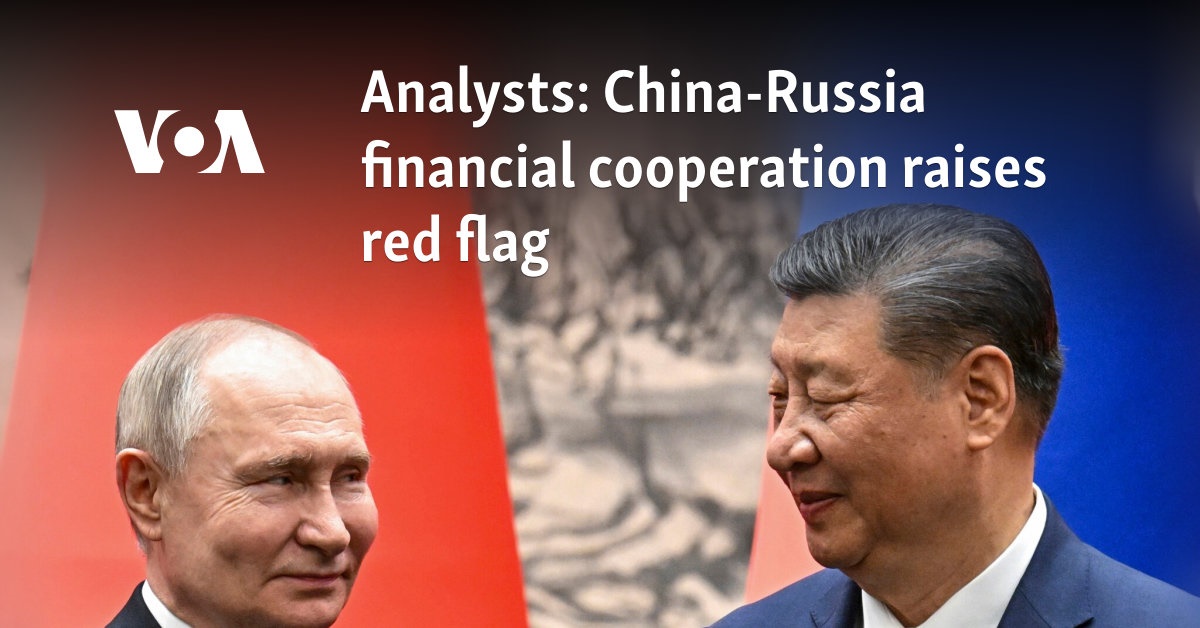World
Council of Europe agrees to set up Register of damage for Ukraine
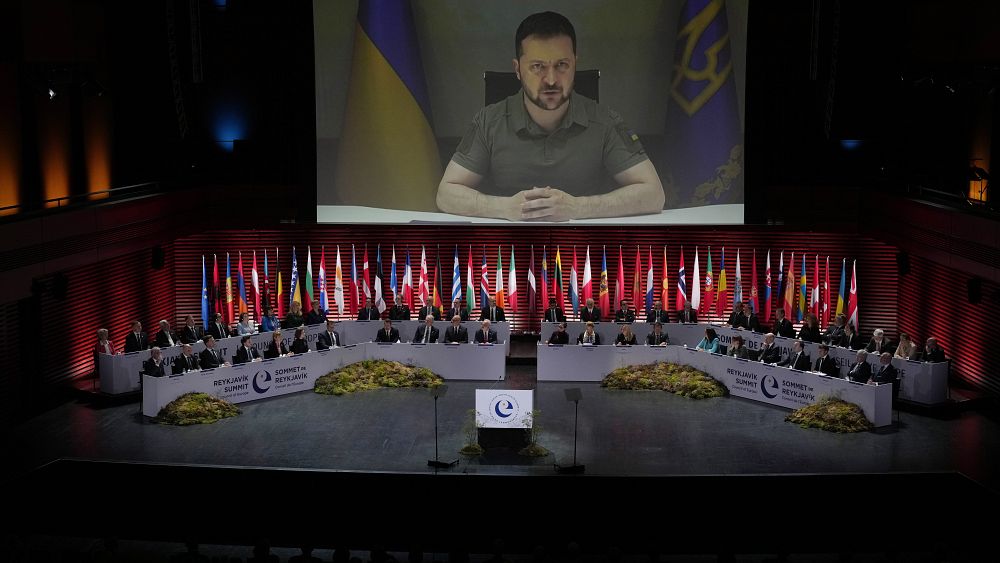
The Register, which will aim to record evidence and claims information on damage, loss or injury caused to individuals, entities and the Ukrainian state, is intended as a first component of a future compensation mechanism.
The leaders of the **Council of Europe**’s 46 member states decided on Wednesday to establish a Register of damage caused by Russia’s aggression in Ukraine.
The decision, taken during a summit in the Icelandic capital, Reykjavík following a two-day exceptional summit, constitutes a first step towards an international compensation mechanism.
There was a consensus among the 46 countries that constitute the human rights organisation that Moscow should compensate victims in Ukraine and help rebuild the nation once the conflict is over.
“This Reykjavik summit shows clearly that (Russian President Vladimir) Putin has failed with his calculations – he wanted to divide Europe and has achieved the opposite. We stand closer together in Europe than ever before. This is our joint message from Reykjavik,” German Chancellor Olaf Scholz said.
The register is to be based in the Dutch city of The Hague and may come to include a claims commission and compensation fund and will serve as a record evidence and claims information on damage, loss or injury caused to individuals, and the Ukrainian state since the beginning of the Russian invasion on 24 February 2022.
The question of how the damages to Ukraine will be paid and how those responsible can be brought to justice was also addressed at the summit with Ukrainian Prime Minister Denys Shmyhal making some suggestions.
“Today’s decision to establish this register is without doubt historic. After that, we should prepare the necessary legal framework for the confiscation of Russian assets and establish a compensation fund. So a comprehensive approach includes creation of international tribunal,” he added.
The Council of Europe’s secretary general, Marija Pejčinović Burić, said that the body intends to support the international effort to establish a judicial organ to prosecute the crime of aggression — the literal act of invading another country.
The United States, Japan and Canada have also joined the efforts and participate in the Council of Europe as observer states.

World
A suicide bomber detonates in Afghan capital, killing at least 6 people and injuring 13

ISLAMABAD (AP) — Police in the Afghan capital say a suicide bomber carried out an attack Monday, killing at least six people and injuring 13 others.
The blast took place in the southwestern Qala Bakhtiar neighborhood in Kabul, said Khalid Zadran, spokesman for the Kabul police chief.
The dead included one woman, he said, while 13 people were wounded, all of them civilians who were taken to a hospital for treatment.
A police investigation is underway. No one immediately claimed responsibility for the bombing.
The Islamic State group’s affiliate, a major rival of the ruling Taliban, has carried out previous attacks on schools, hospitals, mosques and Shiite areas throughout the country.
The Taliban seized power in Afghanistan in August 2021 during the chaotic departure of U.S. and NATO troops after 20 years. Despite initial promises of a more moderate stance, the Taliban gradually reimposed a harsh interpretation of Islamic law, or Shariah, as they did during their previous rule of Afghanistan from 1996 to 2001.
World
Germany's right wing poised for major wins as centrist parties stumble
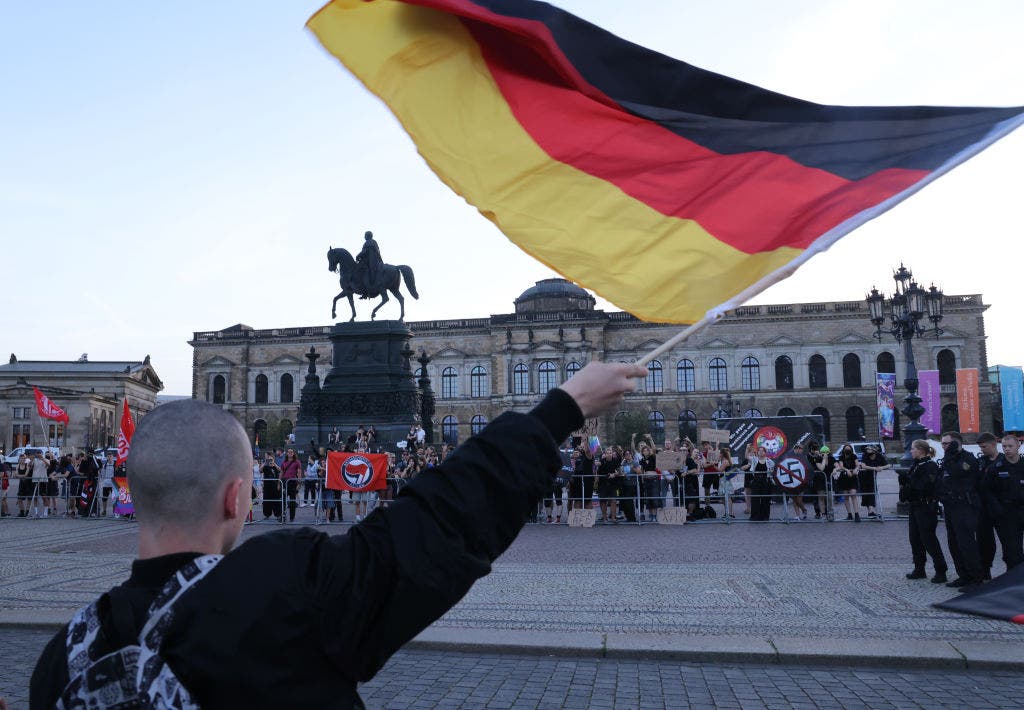
Germany’s right wing Alternative for Germany (AfD) party is expected to win its first election since the party was formed in 2013, as anti-mass immigration sentiment sends voters to the polls.
Exit polls on Sunday showed AfD securing a winning 33.5% share of the vote in Thuringia and 31.5% in Saxony. Meanwhile, the center-left Social Democratic Party – to which Chancellor Olaf Scholz belongs – brought in less than 8% of the vote in both states, according to the Wall Street Journal.
The election follows a wider trend of success for conservative groups across Europe in recent months. French Prime Minister Emmanuel Macron’s government narrowly quashed a conservative takeover of the French parliament earlier this year.
Analysts say the ultimate impact that AfD and other party politicians can have will be determined by how willing centrists are to work with them.
GERMAN RIGHT WING CANDIDATE STABBED IN LATEST ATTACK AHEAD OF ELECTIONS
DRESDEN, GERMANY – AUGUST 29: A skinhead supporter of the far-right Alternative for Germany (AfD) political party waves a German flag while taunting leftist, anti-fascist protesters following the final AfD Saxony election rally prior to state elections on August 29, 2024, in Dresden, Germany. The AfD is currently leading in polls in both Saxony and Thuringia ahead of state elections scheduled for Sunday in both states. (Photo by Sean Gallup/Getty Images)
“The center-right will decide to what extent an AfD win would be a turning point: So far, they have been relatively consistent in excluding cooperation — more so than in other Western European countries,” Manès Weisskircher, a political scientist at the Dresden University of Technology, told the Journal.
The German elections this weekend come just days after a Syrian immigrant killed three people in a stabbing spree in Solingen, Germany. ISIS claimed responsibility for the terrorist attack shortly after.
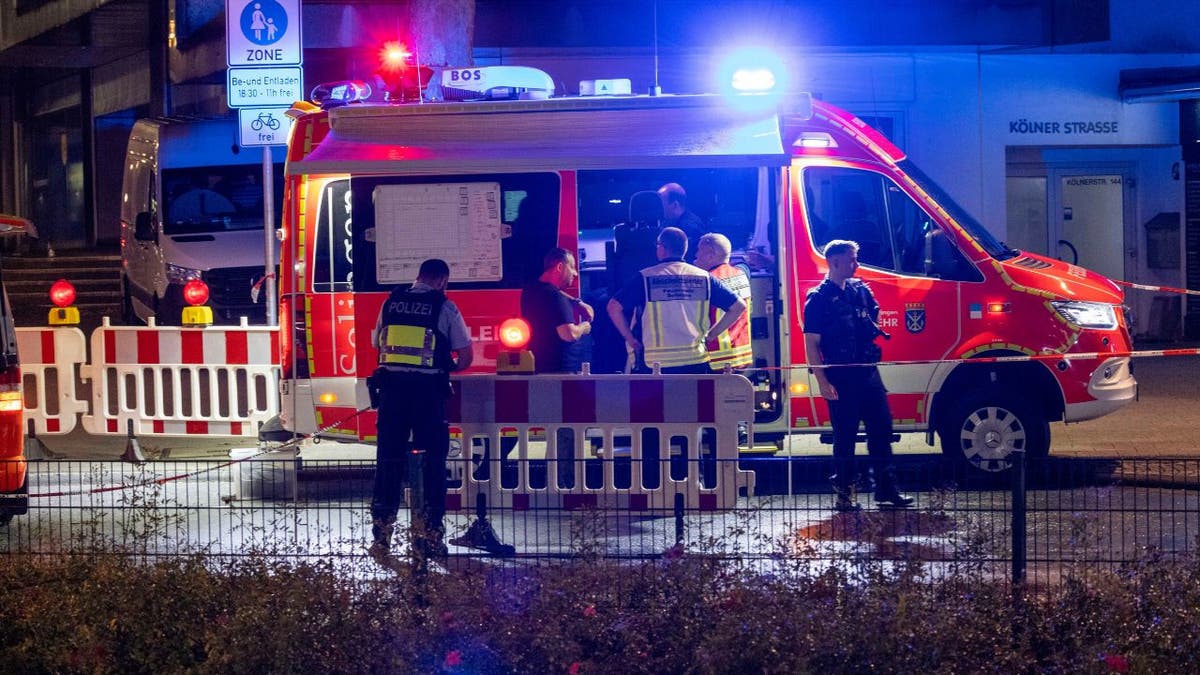
Emergency services and police are deployed near the scene where three people were killed and injured in an attack at a festival in Solingen, western Germany, the German dpa news agency reported, Friday, Aug. 23, 2024. (Gianni Gattus/dpa via AP)
Federal prosecutors in Germany identified the suspect as Issa Al H., omitting his family name because of German privacy laws.
GERMAN TERROR ATTACK SUSPECT IDENTIFIED AS A SYRIAN REFUGEE, CHANCELLOR VOWS TO IMPLEMENT STRICT IMMIGRATION
ISIS said the attacker targeted Christians “to avenge Muslims in Palestine and everywhere.”
Der Spiegel magazine, citing unidentified security sources, said that the suspect had moved to Germany late in 2022, and sought asylum.

German Chancellor Olaf Scholz is facing a surge in right-wing sentiment across Germany. (John MacDougall/AFP via Getty Images)
Similar attacks by Muslim migrants across Europe have spurred anti-immigration sentiment. Even the left-leaning Scholz called for strengthening immigration laws and ramping up deportations in the wake of the attack.
“We will have to do everything we can to ensure that those who cannot and are not allowed to stay in Germany are repatriated and deported,” Scholz said while visiting the sight where the stabbing happened.
“This was terrorism, terrorism against us all,” he said.
Fox News’ Sarah Rumpf-Whitten contributed to this report
World
Seven EU members hadn’t received any post-Covid funding by end-2023
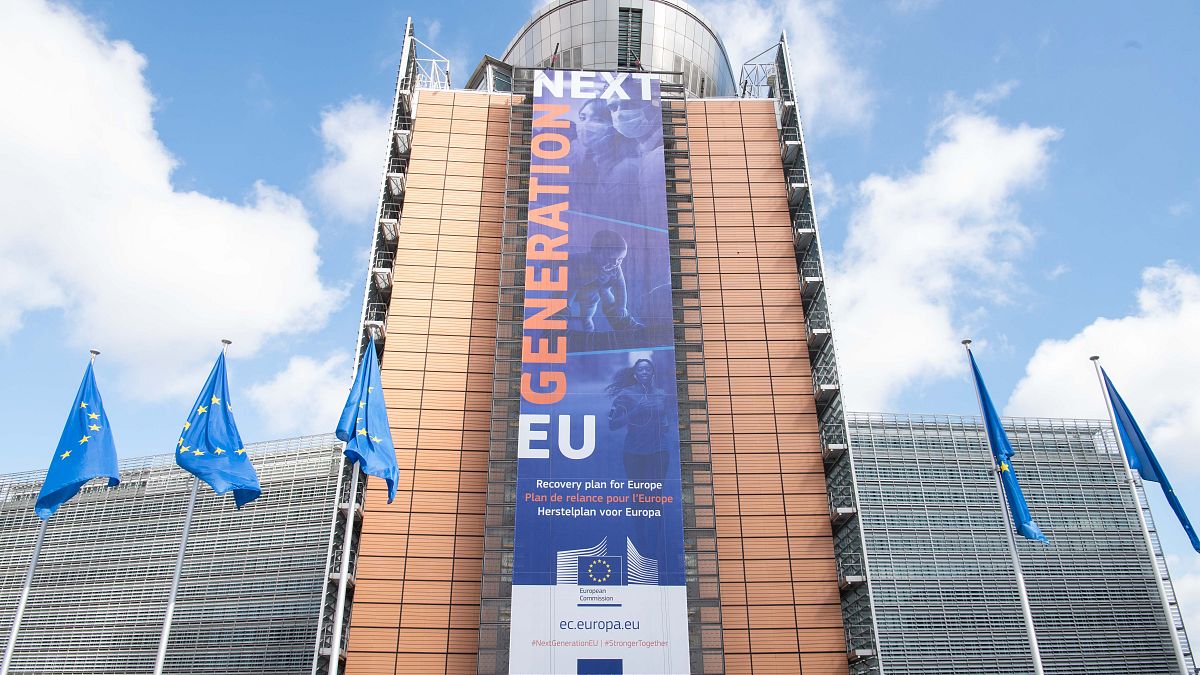
Continued delays are jeopardising the EU’s €724bn post-Covid recovery fund, warns a new report by the European Court of Auditors (ECA).
Three years after creating a huge fund to stimulate post-pandemic recovery, EU member states have used under a third of the €724bn in grants and loans, EU auditors said in a report published today (2 September).
By the end of 2023, Belgium, Finland, Hungary, Ireland, the Netherlands, Poland and Sweden had not received any post-Covid money at all, the EU Court of Auditors said.
Almost all member states have experienced delays in submitting payment requests, whether due to political turmoil, uncertainty over the rules, or national administrative capacity, the report said.
The Netherlands and Hungary did not sign operational agreements, the first step required to access EU funds, while Sweden did not submit a payment application, it added – while others such as the Netherlands were held back by protracted coalition negotiations.
“For the Recovery and Resilience Plan you really need political consensus and support and that the government stands behind the plan, and the Netherlands was waiting for that stability,” Ivana Maletić, senior auditor at the Luxembourg-based EU agency, told Euronews in an interview.
In the more complex case of Hungary, Viktor Orbán’s government has to meet 27 milestones intended to fight corruption and safeguard judicial independence, which he hasn’t yet done.
The other four countries — Belgium, Finland, Ireland and Poland — submitted payment requests later than others, so they were still being assessed by the European Commission, which directly manages and implements the fund, at the end of 2023.
One quarter not completed on time
Unlike cohesion funds, the normal vehicle for EU regional spending, post-pandemic financial support is tied to progress on meeting commitments, and member states are behind schedule in meeting these targets and absorbing funds.
“Timely absorption of the RRF is essential: it helps to avoid bottlenecks in carrying out the measures towards the end of the Facility’s lifespan, and reduces the risk of inefficient and erroneous spending,” said Maletić, who led the audit.
Halfway through the six-year implementation plan for the post-pandemic funds, 24% of the planned reforms and investments have not been completed on time — meaning that a significant number of the trickiest promises have yet to be fulfilled, the ECA found.
With the RRF due to expire in August 2026 and no extension expected, EU auditors are recommending the Commission provide further support to strengthen how similar funds are designed in future.
“It can happen that for some actions, member states receive substantial amounts of funds without finalising them at all because it will not be possible to finalise them within the given time,” a senior auditor told a press conference on Monday (2 September) — though Brussels then doesn’t have the power to claw back money.
The EU executive however rejected auditors’ recommendations to stop funding incomplete actions and recover transfers.
“The Commission does not consider that payments based on progress is a risk and has no legal basis to recover funds already disbursed in relation to milestones and targets already and still fulfilled,” said its response.
-

 Connecticut1 week ago
Connecticut1 week agoOxford church provides sanctuary during Sunday's damaging storm
-
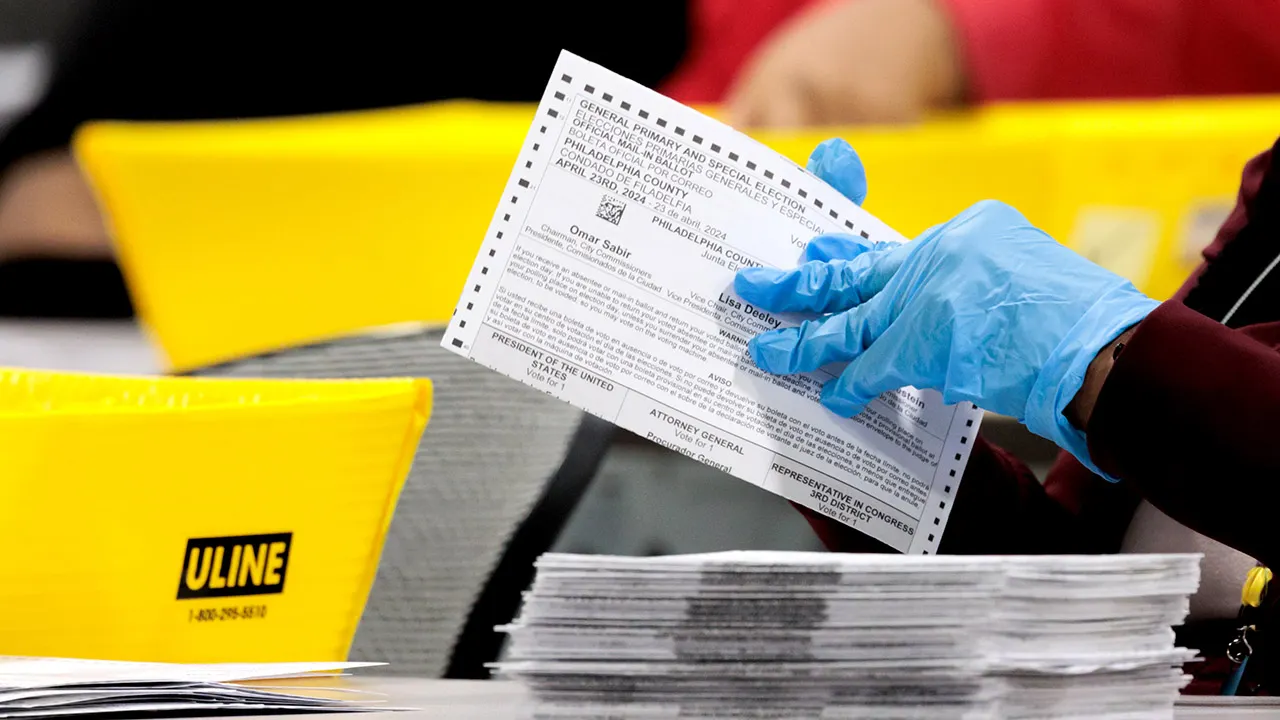
 Politics1 week ago
Politics1 week agoWhy won't Pennsylvania voters have results on Election Night?
-

 Politics1 week ago
Politics1 week agoWith 13 days until voting starts, 'election season' kicks off sooner than you think
-

 Politics1 week ago
Politics1 week ago2024 showdown: What happens next in the Kamala Harris-Donald Trump face-off
-

 World1 week ago
World1 week agoSolingen stabbing: Three killed in attack at Germany festival
-
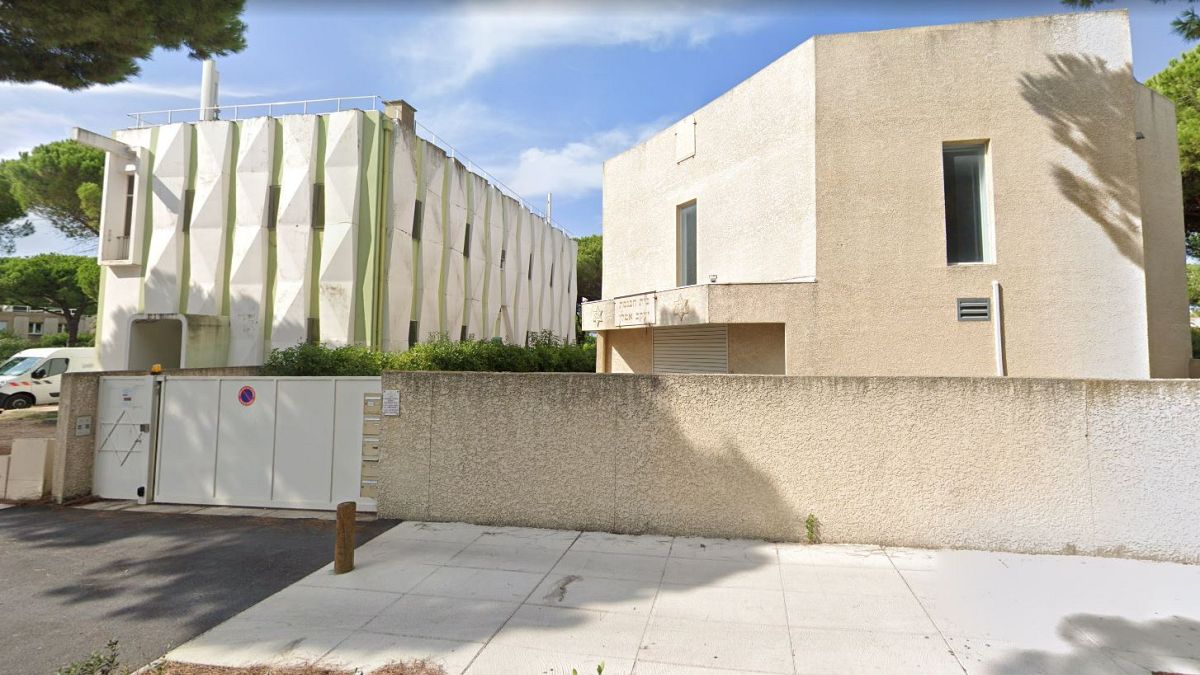
 World1 week ago
World1 week agoFrench police officer injured in synagogue arson attack
-

 World1 week ago
World1 week agoPortugal coast hit by 5.3 magnitude earthquake
-

 Politics1 week ago
Politics1 week agoTrump sets intense pace with campaign events as questions swirl about Harris' policy positions


